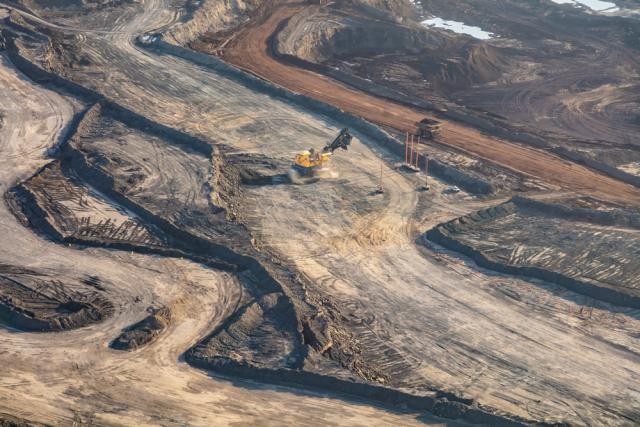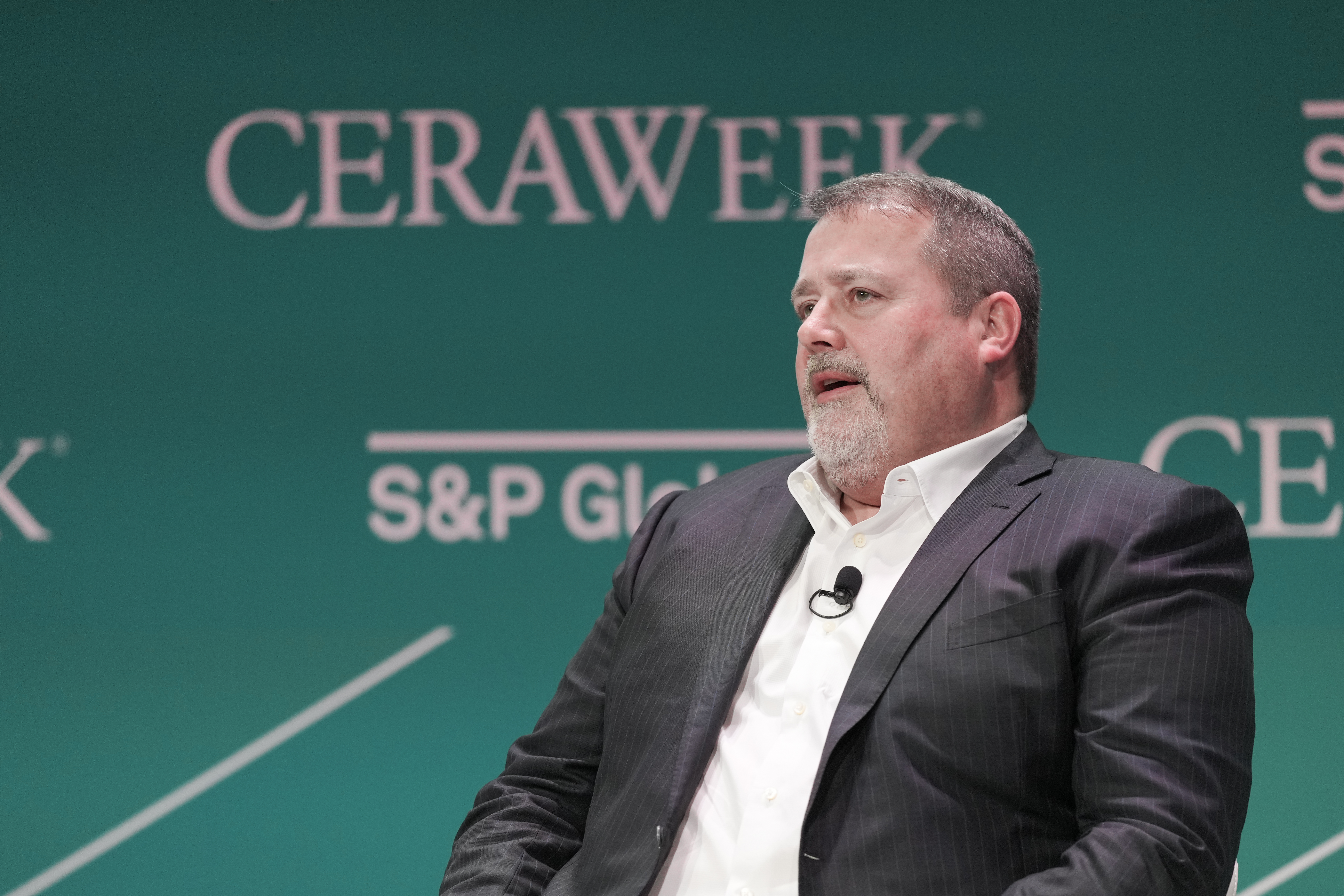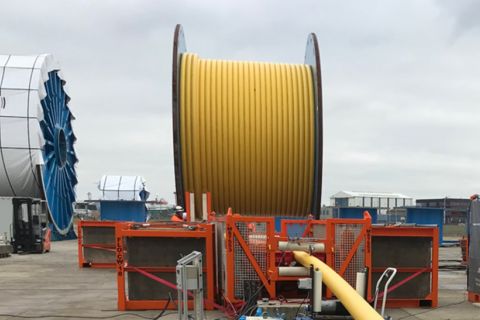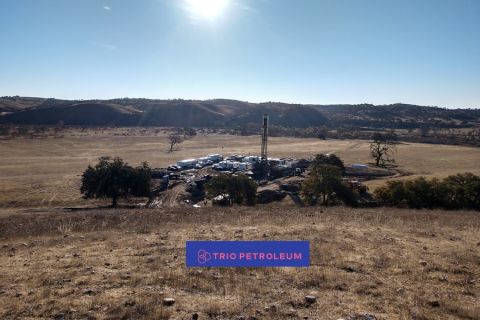
Despite the Canadian oil sands' reputation for emissions, the country's top producers are bent on changing the narrative of Canadian crude. (Source: Shutterstock)
Learn more about Hart Energy Conferences
Get our latest conference schedules, updates and insights straight to your inbox.
A shift in attitudes emerged regarding oil supplies during the past couple of years that should benefit Canadian barrels, Cenovus Energy CEO Alex Pourbaix said at CERAWeek by S&P Global.
Over the course of COVID-19 and Russia’s war in Ukraine, countries prioritized oil derived from nations with a track record for human rights, Pourbaix said during a panel with top Canadian oil sands E&Ps.
Already the fourth-largest source of global supply and top exporter to the U.S., an emphasis on Canadian oil has only grown as the West increasingly shuns Russian oil.
Bringing an ESG focus to Canadian crude — particularly oil sands that emit more than 1,400 known pollutants — might seem a hard row to hoe. But E&Ps are touting their efforts to lower emissions and implement carbon capture, utilization and sequestration (CCUS) — as well as Canada’s environmental policies and international reputation.

“If we have the best human rights record, the best relationship with Indigenous communities, the best regulators, we think demonstrably we should be that preferred choice for oil,” Pourbaix said.
Pourbaix and other top executives meet at 7 a.m. every Friday to grapple with the challenges associated with achieving net-zero Scope 1 and 2 greenhouse-gas emissions by 2050. The group is formally called the Oil Sands Pathways to Net Zero Alliance.
Initially started three years ago, the Pathways Alliance is comprised of six companies accounting for 95% of Canada’s oil sands production. Three participated at the CERAWeek panel: Pourbaix; Bij Agarwal, president of ConocoPhillips Canada; and Kris Smith, interim president and CEO of Suncor Energy.
The other member companies are Imperial Oil, MEG Energy and Canadian Natural Resources. Their overarching goal is to decarbonize every barrel they produce.
The Pathways Alliance works closely with the Canadian federal government and the Alberta provincial government, as well as key stakeholders.
Net zero strategy
Their strategy for net zero involves two phases—the decarbonization of members’ core business and a focus on new investments and energies, Smith said. Milestones have been set in the form of interim targets to 2030.
Suncor’s investments are complementary to its existing portfolio after having divested out of wind and solar, Smith said. Instead, Suncor is dedicated to low-carbon fuels and hydrogen, such as producing blue hydrogen as a feedstock for refineries.
While each company has individual emissions initiatives, Pathways allows them to collaborate on technology and projects to achieve shared goals.
Together, the Pathways Alliance is focusing on CCUS, building a carbon storage hub in Alberta that would connect to a trunk-line transporting captured CO2 from roughly 14 oil sands facilities, with plans to eventually include more than 20 facilities. By 2030, the hub will lessen 22 million tonnes per annum (mtpa) of CO2 emissions and, by 2040, 25 mtpa.
The group has started an evaluation of the hub through a carbon sequestration evaluation agreement made with the government of Alberta to assess geological characteristics of a deep underground CO2 storage formation, Pathways announced in January. The hub would be one of the largest carbon capture and storage projects in the world.
Along with environmental evaluations, the Alliance is also having conversations with local communities affected by the transportation line and storage network, including First Nation and Métis communities and local stakeholders, the press release said.
Not ‘dirty’ oil
By joining Pathways, ConocoPhillips saw an opportunity to implement its climate risk strategy without having to compete with producers that would otherwise be rivals, Agarwal said.
“We’re not competing against each other for labor,” said Agarwal. “We’re actually working together… to make sure that as we phase our projects in. We’re taking advantage of the market and being able to put the right labor in the right place.”
Another focus is addressing misconceptions that Canada produces “dirty oil” and adding to Canada’s economy and innovating the industry, Pourbaix said.
Smith added that if Pathways is successful, “the next boom you’re going to see in Alberta is going to be decarbonization.”
“We [have to] stop asking the question of ‘what do we need to shut down?’ and ask the question of ‘what do we need to build?’” Smith said.
Recommended Reading
Exxon Mobil Guyana Awards Two Contracts for its Whiptail Project
2024-04-16 - Exxon Mobil Guyana awarded Strohm and TechnipFMC with contracts for its Whiptail Project located offshore in Guyana’s Stabroek Block.
Deepwater Roundup 2024: Offshore Europe, Middle East
2024-04-16 - Part three of Hart Energy’s 2024 Deepwater Roundup takes a look at Europe and the Middle East. Aphrodite, Cyprus’ first offshore project looks to come online in 2027 and Phase 2 of TPAO-operated Sakarya Field looks to come onstream the following year.
E&P Highlights: April 15, 2024
2024-04-15 - Here’s a roundup of the latest E&P headlines, including an ultra-deepwater discovery and new contract awards.
Trio Petroleum to Increase Monterey County Oil Production
2024-04-15 - Trio Petroleum’s HH-1 well in McCool Ranch and the HV-3A well in the Presidents Field collectively produce about 75 bbl/d.
Trillion Energy Begins SASB Revitalization Project
2024-04-15 - Trillion Energy reported 49 m of new gas pay will be perforated in four wells.





